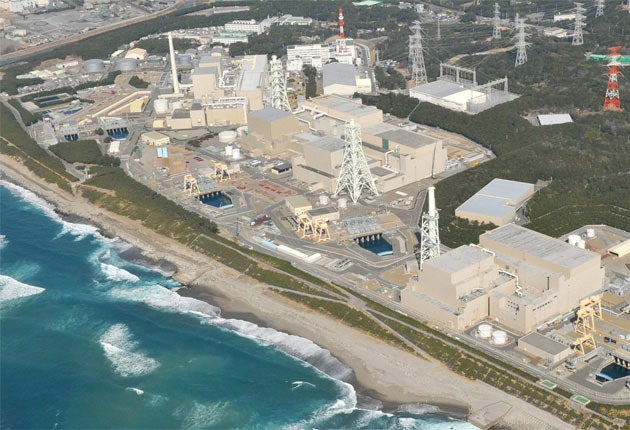'World's most dangerous' nuclear power plant is closed down

Prime Minister Naoto Kan has stunned Japan's power industry by asking for the closure of the country's most controversial atomic plant, eight weeks after a huge earthquake and tsunami triggered the world's worst nuclear crisis since Chernobyl.
Mr Kan said the authorities in Japan have long accepted the high probability of a major jolt underneath the Hamaoka complex, about 200km south-west of Tokyo. "This is a decision made for the safety of the Japanese people when I consider the special conditions of the Hamaoka plant," he told reporters.
Some seismologists have called Hamaoka the world's most dangerous nuclear power facility. Government forecasts have predicted an 87 per cent chance of a powerful quake in the area, which sits on two major subterranean faults. A major accident would be likely to force the evacuation of Greater Tokyo, home to 28 million people.
The warnings have been given more urgency since the start of the crisis at the Fukushima Daiichi nuclear complex, 250km north-east of the capital. The plant's cooling systems were destroyed by March's magnitude-9 quake and the 15-metre tsunami that followed. Hamaoka is presently built to withstand only an 8.5-magnitude quake and an eight-metre tsunami.
Plant operator Chubu Electric Power Co will temporarily shut down reactors 4 and 5 and cancel the resumption of reactor 3, which was due to restart in the summer. Reactors 1 and 2 have been permanently mothballed. A sixth reactor is also planned. Mr Kan said the directive would continue until the "appropriate" safety measures were taken, including the strengthening of tsunami walls around the complex.
"The Prime Minister's announcement is a huge step toward permanently closing this power plant and an acknowledgement that it is too dangerous to operate," said Yoshika Shiratori, who is leading a lawsuit against Hamaoka. "We hope this is the beginning of the end for nuclear power in Japan, where constant earthquakes make them too risky."
It was unclear last night how Chubu Electric and the rest of Japan's nuclear industry will react. Legal experts told the media the premier has no authority to stop power plants from operating. Akihisa Mizuno, president of Chubu Electric, declined to comment. "We will try to respond as soon as possible," he said. Chubu Electric won a lawsuit four years ago against local activists who wanted Hamaoka to be closed. They claimed that Chubu Electric had underestimated seismic activity when it built the plant four decades ago.
Join our commenting forum
Join thought-provoking conversations, follow other Independent readers and see their replies
Comments
Bookmark popover
Removed from bookmarks